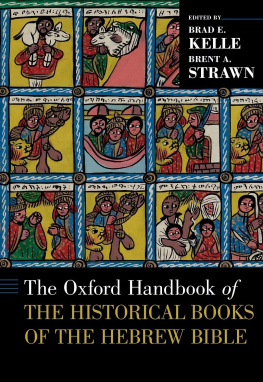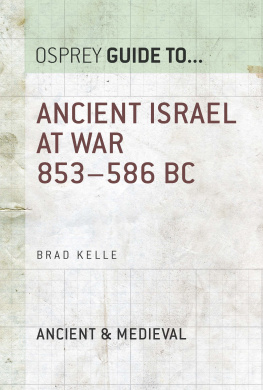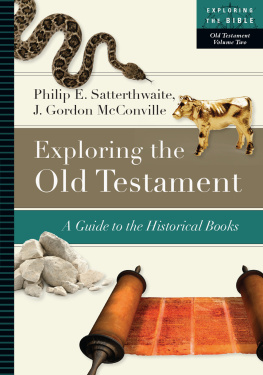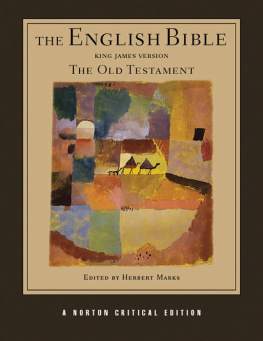Oxford University Press is a department of the University of Oxford. It furthers the Universitys objective of excellence in research, scholarship, and education by publishing worldwide. Oxford is a registered trade mark of Oxford University Press in the UK and certain other countries.
198 Madison Avenue, New York, NY 10016, United States of America.
All rights reserved. No part of this publication may be reproduced, stored in a retrieval system, or transmitted, in any form or by any means, without the prior permission in writing of Oxford University Press, or as expressly permitted by law, by license, or under terms agreed with the appropriate reproduction rights organization. Inquiries concerning reproduction outside the scope of the above should be sent to the Rights Department, Oxford University Press, at the address above.
You must not circulate this work in any other form and you must impose this same condition on any acquirer.
Names: Kelle, Brad E., 1973- editor. | Strawn, Brent A., editor.
Title: The Oxford handbook of the historical books of the Hebrew Bible / edited by Brad E. Kelle and Brent A. Strawn.
Description: New York, NY, United States of America : Oxford University Press, 2020.
Identifiers: LCCN 2020018914 (print) | LCCN 2020018915 (ebook) | ISBN 9780190261160 (hardback) | ISBN 9780190074111 (epub)
Subjects: LCSH: Bible. Historical BooksCriticism, interpretation, etc.
Classification: LCC BS1205.52 .O94 2020 (print) | LCC BS1205.52 (ebook) | DDC 222/.06dc23
Editorial Preface
Our initial discussions about this volume stretch back at least six, if not seven years, and so we are thankful, at the end of a long process, for the help and support we have received along the way, especially from the staff of Oxford University Press and our friend and editor Steve Wiggins. Our thanks also go to Caleb Strawn, who prepared the indices. Of course our deepest debts go to the contributors for their fine work and their patience during the slow process of bringing this large project to completion.
Although we took great editorial care during the review process, the reader will note some inconsistenciesa few of which, at least, are present by design. We have not, for instance, regularized all translations, whether of biblical or non-biblical texts. Similarly, we have not always provided versification differences across Hebrew, Greek, and English editions of the Bible. We have not always regularized the spelling of the divine name Yhwh, though our own preference was to devocalize it. We also did not require contributors to use Hebrew Bible rather than Old Testament. In all of these casesand similar oneswe have deferred to the individual preferences of the contributors. Additionally, in the case of some essays, original scripts were required; in most others, we have opted for transliteration so as to make the essays accessible to those who dont read the original languages. Again, these inconsistencies are often by design; at the least they are not naive. We hope that whatever discomfort readers may experience upon encountering such discrepancies will pale in comparison to the insight afforded by the contributions contained herein.
Finally, in a large reference work such as this one, with so many different contributors, some degree of overlap is to be expected and is, in fact, unavoidable. One will notice, for example, that several essays touch on compositional theories and debates regarding the Deuteronomistic History or the books of Chronicles and Ezra-Nehemiah, with several others rehearsing the vexed tradition history of Ezra in its various ancient versions. Here again we have chosen not to eliminate such overlap, but have preferred to let it stand. We deem this a matter of scholarly integrity: letting each contributor have her or his say. Yet we also deemed it helpful, both pedagogically and interpretively: repetition is, after all, a useful method in teaching and learning; it is also the case that a number of the biblical books treated here abound in it!
Brad E. Kelle, Point Loma Nazarene University, San Diego, CA
Brent A. Strawn, Duke University, Durham, NC
Contents
Introduction
Brad E. Kelle and Brent A. Strawn
Historiography and History Writing in the Ancient World
Richard D. Nelson
Assyrian and Babylonian Sources
Martti Nissinen
Achaemenid Political History and Sources
Amelie Kuhrt
Text-Critical Issues with Samuel and Kings
Julio Trebolle Barrera and Eugene Ulrich
Text-Critical Issues in Ezra-Nehemiah and 1 Esdras
Lisbeth S. Fried
Early Israels Origins, Settlement, and Ethnogenesis
Ann E. Killebrew
Israelite State Formation and Early Monarchy in History and Biblical Historiography
Walter Dietrich
The Later Monarchy in History and Biblical Historiography
Paul S. Evans
New Perspectives on the Exile in Light of Cuneiform Texts
Laurie Pearce
New Perspectives on the Return from Exile and Persian-Period Yehud
Mary Joan Winn Leith
Israelite and Judean Society and Economy
Roger S. Nam
Politics and Kingship in the Historical Books, with Attention to the Role of Political Theory in Interpretation
Geoffrey Parsons Miller
The Distinctive Roles of the Prophets in the Deuteronomistic History and the Chroniclers History
Marvin A. Sweeney
The Various Roles of Women in the Historical Books
Mercedes L. Garca Bachmann
Exogamy and Divorce in Ezra and Nehemiah
Herbert R. Marbury
Yahwistic Religion in the Assyrian and Babylonian Periods
Richard S. Hess
Yahwistic Religion in the Persian Period
Melody D. Knowles
A Theological Comparison of the Deuteronomistic History and Chronicles
Matthew J. Lynch
Divine and Human Violence in the Historical Books
Douglas S. Earl
The So-called Deuteronomistic History and Its Theories of Composition
Thomas Rmer
Reading the Historical Books as Part of the Primary History
Richard S. Briggs
Synchronic Readings of Joshua-Kings
Serge Frolov
The Rise and Fall of the So-called Chroniclers History and the Current Study of the Composition of Chronicles, Ezra, and Nehemiah
Ralph W. Klein
1 Esdras: Structure, Composition, and Significance
Kristin De Troyer
Synthetic and Literary Readings of Chronicles and Ezra-Nehemiah
Steven J. Schweitzer
The Role of Orality and Textuality, Folklore and Scribalism in the Historical Books
Susan Niditch
Feminist and Postcolonial Readings of the Historical Books
Cameron B. R. Howard
The Deuteronomistic History as Literature of Trauma
David Janzen
Joshua in Reception History
Zev I. Farber
Deborah in Reception History
Joy A. Schroeder
Samson in Reception History
Kelly J. Murphy
Saul in Reception History
Barbara Green
David in Reception History
Dominik Markl
Solomon in Reception History
Sara M. Koenig
Ezra and Nehemiah in Reception History












